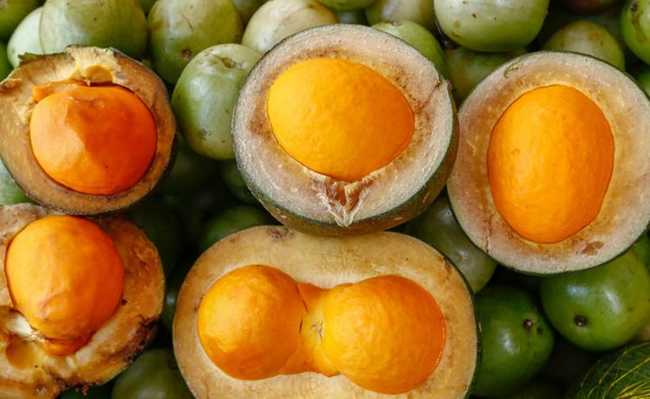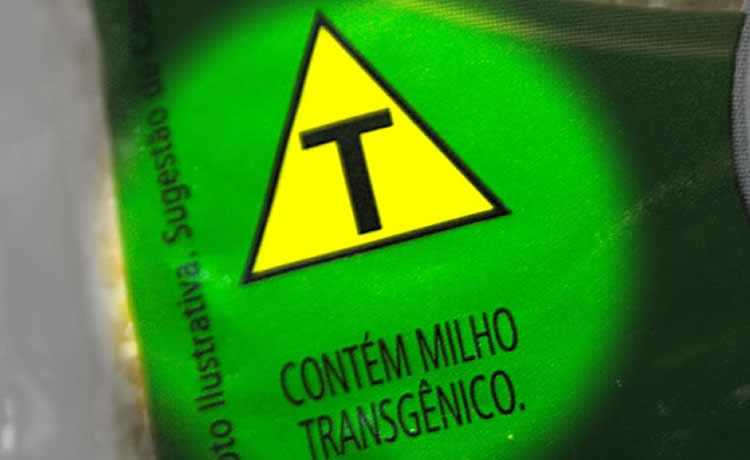Pequi oil is edible and full of benefits
Pequi oil is rich in fatty acids and carotenoids, which provides several health benefits

Pequi is a fruit of the tree called pequizeiro (Caryocar Brasiliense Camb.), common in the Cerrado regions of Brazil, and its cultivation is a source of income for several families that inhabit these locations (Minas Gerais, Goiás, Distrito Federal, São Paulo and Bahia). Also known as piqui, pequiá, piquiá, wild piquiá, thorn-corn, horse pea, pequerim and suari, pequi stands out in the typical cuisine of these regions, applied in local dishes, condiments and sweetened drinks, in addition to of being possible to extract oil from pequi.
Thanks to its commercial interest, such as cooking and oil extraction, pequi generates countless jobs and income for several families at harvest time. A pequi tree produces between 500 to 2000 fruits per harvest, producing an average of 180 kg of pulp, 33 kg of almonds, 119 kg of pulp oil and 15 l of almond oil.
pequi oil
Pequi vegetable oil can be extracted from its pulp or almond, thus having differences in its composition. The most pronounced change among these oils is the predominance of fatty acids. In pequi pulp oil, oleic acid (omega 9) predominates, while in pequi almond oil, the acid that is predominant is palmitic.
The pequi oil extraction process is not unique and may vary from producer to producer. The most artisanal method, and still very present in rural oil production, is the aqueous extraction process. After the pequi peel is removed, the pulp and almonds are placed in water and heated to 80°C. As the oil is not soluble in water and is less dense than water, it "rises" and stays on the surface, thus being able to be collected by decantation or even manually, as is done by more traditional productions. The video shows a little about the reality of pequi pickers and the aqueous extraction of their oil.Other processes consist of extraction by pressing in an extruder, followed by solvent treatment (usually ethanol), or simple pressing, which can be followed by enzymatic treatment to increase yield.
Benefits and applications of pequi oil
Pequi oil is widely used in cooking, but it is also used in the cosmetic industry, in the production of soap, and as a medicinal product, to combat bronchitis, flu and colds, but these effects are not scientifically proven, they are just part of medicine popular.
The pequi pulp has a large amount of carotenoids, responsible for its yellowish color, but it is not only the characteristic color that these compounds bring. Some carotenoids are considered vitamin A generators (when consumed, they convert to vitamin A). Other carotenoids present in the pequi pulp have antioxidant action, bringing several benefits to health maintenance.
Due to the presence of these compounds and various fatty acids, pequi and oil are studied and applied in the pharmaceutical and cosmetic industries. Research studies the antifungal effects and therapeutic applications of the oil and the compounds present.
Antioxidant effect:
Thanks to this effect, pequi oil is applied in cosmetics, such as creams, to act as anti-aging and contribute to the maintenance of the skin. This high antioxidant effect of the oil also gives greater stability to the product, with no need to add preservatives.
Presence of carotenoids:
As a rich source of carotenoids, pequi oil is edible and widely used in cooking as cooking oil.
Presence of fatty acids:
The high amount of oleic acid, present in pequi oil, is an attraction for the production of biodiesel. Biofuel oxidation is a major problem that affects its quality and interest in its production. Monounsaturated acids are considered more interesting for biofuel production due to their stability. In addition to the high content of monounsaturated acids, pequi oil has a great antioxidant effect, as seen above, which further contributes to the stability of the oil. However, the limiting factor for the production of biofuel through this oil is the low existing production and also its harvest, which is short - just four months a year.
Pequi oil is one of the best vegetable oils available, providing health benefits through its use in cooking and cosmetics. pequi oil.
However, before using it, make sure that the product is 100% natural and pure, free from components that can be harmful to health. Usually, products that contain pequi oil can also have harmful substances, such as parabens, in order to improve some physical aspect of the product and even its lifespan.discard
It is also worth mentioning that the improper disposal of oils causes serious environmental impacts, mainly in terms of water contamination. Thus, the disposal of vegetable oils in drains and sinks is inadequate, as it can cause several environmental risks and blockage in the pipes. Therefore, in case of disposal, look for the correct place to dispose of these products; put the residual oil in a plastic container and take it to a disposal point so the oil can be recycled. Learn more in the article: "Disposal of cooking oil: how to do it".You can find the nearest oil disposal point. Also, use the oil used to produce high quality soap.
- How to make sustainable homemade soap










